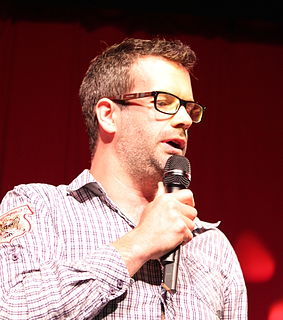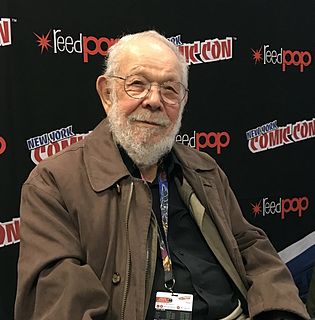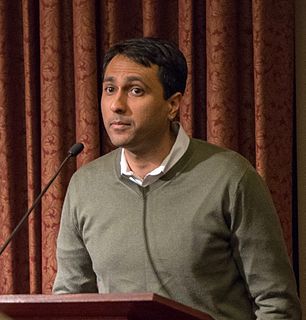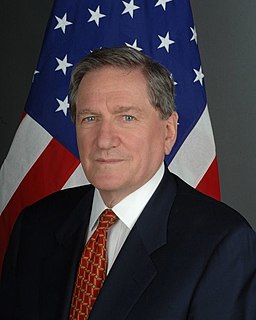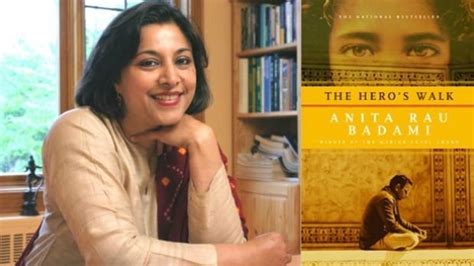A Quote by Marcus Brigstocke
This goes out to the followers of the three Abrahamic religions: To the Jews, Christians, and Muslims. It's just a little thing, really. But do you think that when you're done smashing up the world and blowing each other to bits and demanding special privileges while you're at it... do you think the rest of us could have our planet back?
Related Quotes
Too many people think that the faith line divides Muslims and Christians or Jews and Hindus, or just to say that there is this clash of civilizations and people from different religions are inevitably against each other, inherently opposed to each other. I don't believe that for a second. I think the faith line divides totalitarians and pluralists, which is to say that totalitarians from different religious backgrounds.
There is a split between Muslims who want to practice their faith in peace and tolerance with other religions and other people, and these extreme, radical fundamentalists who have shown a total lack of tolerance for people with different views, starting with people who they don't think are good Muslims, and going on to include Christians and Jews.
Too frequently we think we have to do spectacular things. Yet if we remember that the sea is actually made up of drops of water and each drop counts, each one of us can do our little bit where we are. Those little bits can come together and almost overwhelm the world. Each one of us can be an oasis of peace.
In the West nowadays, it's very common to talk about the Judeo- Christian tradition. It's a common term. The term is relatively modern but the reality is an old one. One could with equal justification talk about a Judeo-Islamic tradition or a Christian-Islamic tradition. These three religions are interlinked in many signification ways, which marks them off from the rest of the world. And I think there is a growing awareness of this among Christians and among Jews, and even to some extent to some Muslims. That's happening for obvious reasons.
The historical relationship between Christians and Jews for most of the two thousand years of Christianity has not been good and it's been mostly persecution by Christians of Jews - not all the time, not every place, but mostly it's been that. I think that's just a terribly regretful thing. I don't see it anywhere in the Scriptures that I read, that Christians are to persecute Jews. I think it's been quite damaging. I think it's been a bad witness.
Muslims insult all other religions. The Quran is an insult to the Jews, the Christians and everyone else. It calls the Jews apes, pigs and rats. All the non-believers are najis (filthy, impure) and hell bond. The Quran even instructs the Muslims to fight the unbelievers, chop their fingertips, behead them, crucify them and deal with them harshly. 5:33, 9:14, 9:73 However, Muslims went berserk when a Danish Newspaper published a few cartoons of Muhammad.
It's something that exists on a daily basis on practically every street in India. You have people who are Hindus, Muslims, Christians - not just Catholics, but Protestants, you name it, all kinds of Christians - a hundred other religions, living side by side. And the kind of personal religion that people end up practicing is a bizarre concoction of ritual drawn from each other. So everybody ends up celebrating everyone else's festivals.
We don't have to give up trying to convert each other. What we have to do is show respect to one another. And to speak to each other with a sense that even if people don't convert, they are God's people, God loves them, and we do not make the judgment of who is going to heaven and who is going to hell. I think that what we all have to do is leave judgment up to God. The Muslim community is very evangelistic, however what Muslims will not do is condemn Jews and Christians to Hell if in fact they do not accept Islam.
And so we stood together like that, at the top of that field for what seemed like ages, not saying anything, just holding each other, while the wind kept blowing and blowing at us, tugging our clothes, and for a moment, it seemed like we were holding onto each other because that was the only way to stop us from being swept away into the night.
I have decided to proclaim for the whole Church... a day of fasting and prayer for peace in Syria, the Middle East, and throughout the world, and I also invite each person, including our fellow Christians, followers of other religions and all men of good will, to participate, in whatever way they can, in this initiative.
There ain't no such thing as black Muslims. That's how they tried to cut off all my brothers in the rest of the world and divide us in America and make other Muslims think that we are not with them.We are all the same. I recognise them and they recognise me. I'm invited to all of their homes all over the world and I'm invited to Muslim countries.
I remember my parents yelling at each other and at me from an early age, and I remember a lot of things smashing. I try to look for the happy memories from the brief time my parents were married, and I can't really recall that. From the start things were messed up, and I just kept moving through the years and trying to pick out the little bits of evidence that would help me prove to myself that it wasn't my doing. But it took finding out somebody really does love me, who's not my parents or a relative, to really know that I was loveable.
Those are big challenges in our age, not just how we live as co-citizens in societies with people of different faiths and different cultures - I mean, that's a big challenge itself - but how we think about all that as Christians, or as Jews, or as Muslims, or as Hindus. How do we think about the religious other? There's a theological dimension as well as a civic dimension to our pluralism.
